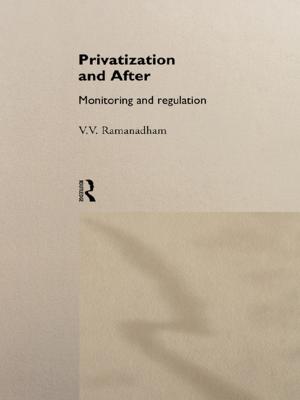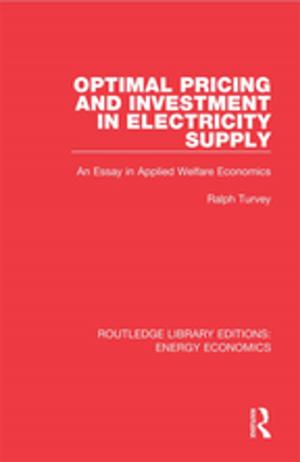| Author: | ISBN: | 9781351687409 | |
| Publisher: | Taylor and Francis | Publication: | April 17, 2018 |
| Imprint: | Routledge | Language: | English |
| Author: | |
| ISBN: | 9781351687409 |
| Publisher: | Taylor and Francis |
| Publication: | April 17, 2018 |
| Imprint: | Routledge |
| Language: | English |
The Political Economy of Lula’s Brazil describes the social, political and economic transformations that led to increased interest in the tropical giant at the start of the 21st century. This volume demonstrates that Brazil’s rise was the result of the adoption of heterodox economic policies, while also highlighting the obstacles to choosing an egalitarian development path in Latin America.
Adopting an innovative perspective in terms of methodology and interpretation, contributors from Brazil, Latin America and France follow a non-dogmatic critical approach in order to explain the institutional changes that made a new cycle of development possible in Brazil. The authors also argue that the evolution of Brazil, following the implementation of leftist policies, paradoxically gave birth to several economic, political and environmental contradictions. They contend that these contradictions, including the falling rate of profit linked to the full employment of resources; the redistributive process seen as a menace by the conservative middle classes; and the growing intervention of the state in the different markets, eventually led to the end of the early 21st century development cycle.
Providing clues to understanding the contradictory and painful path towards the development of semi-industrialised countries, this book will interest students and academics in the fields of economics, sociology, history and political science. The story it tells may also interest all those searching for independent analysis of the successes and failures of Lula’s Brazil.
The Political Economy of Lula’s Brazil describes the social, political and economic transformations that led to increased interest in the tropical giant at the start of the 21st century. This volume demonstrates that Brazil’s rise was the result of the adoption of heterodox economic policies, while also highlighting the obstacles to choosing an egalitarian development path in Latin America.
Adopting an innovative perspective in terms of methodology and interpretation, contributors from Brazil, Latin America and France follow a non-dogmatic critical approach in order to explain the institutional changes that made a new cycle of development possible in Brazil. The authors also argue that the evolution of Brazil, following the implementation of leftist policies, paradoxically gave birth to several economic, political and environmental contradictions. They contend that these contradictions, including the falling rate of profit linked to the full employment of resources; the redistributive process seen as a menace by the conservative middle classes; and the growing intervention of the state in the different markets, eventually led to the end of the early 21st century development cycle.
Providing clues to understanding the contradictory and painful path towards the development of semi-industrialised countries, this book will interest students and academics in the fields of economics, sociology, history and political science. The story it tells may also interest all those searching for independent analysis of the successes and failures of Lula’s Brazil.















